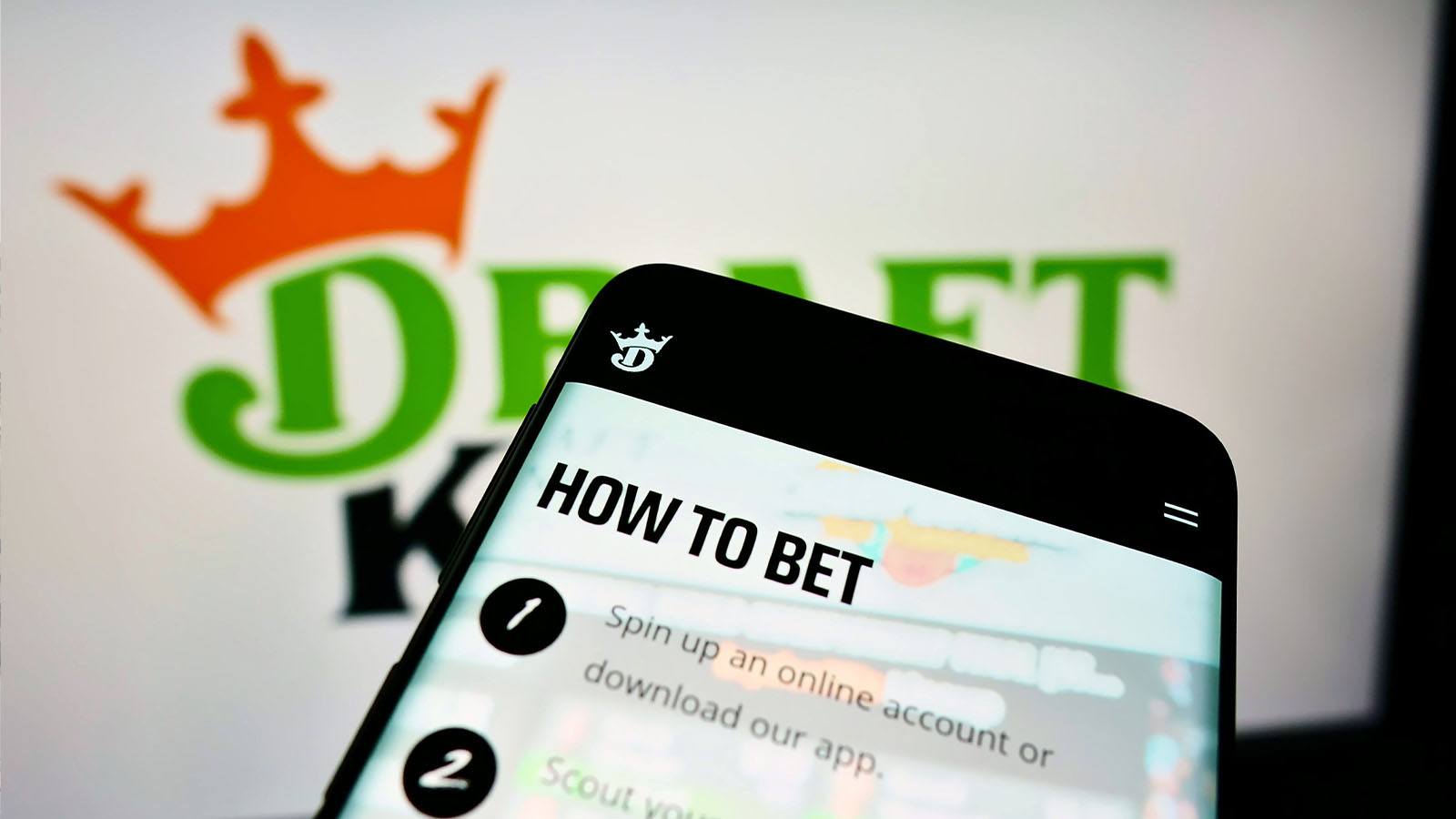Massachusetts Sports Betting: Regulators Take 'Next Steps' On Player Limits

Must be 21+ to participate (18+ in KY). Gambling problem? Call 1-800-GAMBLER (CO, IL, IA, KY, KS, LA, MD, MO, NC, NJ, OH, PA, TN, VA). Call 1-800-NEXT-STEP (AZ). Call 1-800-9-WITH-IT (IN). CALL 1-877-770-STOP (LA). Must be present in LA (select parishes). Licensee partner Amelia Belle Casino. Minimum $10 deposit required. Minimum odds -500 or greater. Bonus Bets wager excluded from returns. New customers only. T&Cs, time limits and exclusions apply.
The Massachusetts Gaming Commission Thursday agreed on "next steps" in possibly regulating the practice of player limits placed on bettors by sports books. MGC Sports Wagering Division Chief Carrie Torrisi requested MGC staff be allowed to seek data from all the licensed operators in Massachusetts that details the number and circumstances concerning all players limited.
Commissioners unanimously agreed without a formal vote to allow staff to proceed. Once the data is received and examined, the Commission appears poised to consider first-in-the-nation regulations on player limits.
"Such regulations might include things like requiring notifications to patrons who have been limited, implementing reporting or auditing requirements, regarding patron limits, or requiring clear and defined protocols and perimeters around patron limits," Torrisi said at the MGC's scheduled meeting.
The move to examine and possibly regulate player limits has been underway in Massachusetts informally via the MGC since last year when legal betting was launched in the Commonwealth.
"We are going to be curious here and I look forward to what we learn," MGC Chair Jordan Maynard said.
Regulators in at least one other state (Wyoming) are now holding public hearings on the same issue of player limits.
Also Thursday, the MGC received the results of a study commissioned by the state legislature to study the feasibility of remote betting kiosks in Massachusetts. The study conducted by Spectrum Gaming Group concluded that betting kiosks should not be added in Massachusetts. "There is little economic upside for kiosk hosts and the Commonwealth itself where there is an increased risk of negative social impacts," the study said. The MGC also approved wagering statewide on the Tomorrow's Golf League (TGL), which begins play in January.
Sports Books Limit Players To 'Effectively Manage Risk'
A meeting on player limits was held by the MGC on September 11 during which stakeholders from both the industry and public shared their perspectives.
That was the second attempt to discuss the issue. On May 21, every legal Massachusetts retail and mobile sportsbook in operation at that time chose to skip a public roundtable called to discuss the issue of betting limits being placed on winning players.
Both in public and private, Commissioners were roiled by the snub.
In a meeting on August 1, Commissioners offered a "carrot and stick" approach to the state's 7 online and 3 retail operators during a scheduled discussion on the matter.
That was enough to get all licensed operators in the Bay State to the table in September. “To effectively manage risk, we limit a small minority of patrons that we consider to be advantaged players who attempt to take advantage or find ways around our risk management framework. This group of limited patrons, many of whom self-identify as professional bettors, are loud in insisting that limiting patrons is a pervasive practice by operators. However, this is not accurate; it is actually the opposite,” BetMGM senior director of compliance Sarah Brennan said at that meeting.
She added that BetMGM limits only 1% of its Bay State customers. “And it is our ability to limit that small minority of advantaged players that allow us to continue to offer competitive lines, competitive odds, and a wide variety of markets for the 99 percent of non-advantaged players that play with us.”
The other operators who spoke in September shared a similar sentiment, publicly admitting what many had believed: Sports betting operators limit players who are more likely to win.
FanDuel’s vice president of product and new market compliance Cory Fox said his book works to “manage our liability exposure and avoid unsustainable losses” from players looking for errors, or hoping to play off different lines between books, or those who live bet while attending games in an effort to beat live line changes.
“On an average day, FanDuel takes wagers on 2,700 unique events and over 37,000 different markets within those events. So in limited cases, over all of those markets, some users may have more information than we do. Some users may have a better model than we do,” he said. “We’re comfortable taking wagers for them, but we have to do it in a responsible manner that protects our company.”'
'Ultimately there may be some regulations that come out of this'
"Ultimately there may be some regulations that come out of this. My question to the operators is do they want to be a part of the conversation or just reactive," Maynard said on August 1. "We're having a larger policy conversation. Hard for me to believe operators don't have an opinion on this policy decision we may or may not make."
The idea of another roundtable was panned by Commissioners at that time, as they also floated the idea of demanding operators issue quarterly reports detailing the number of players limited and the reasons why.
"We're going to give it another go. I don't love a roundtable at this point. We tried it, but they chose not to come. I would like to give this one more shot with both sides but would like to see it in the form of a public meeting with some questions written," Commissioner Eileen O'Brien added.
The MGC had given operators a series of questions ahead of the May roundtable. All the operators issued similar statements saying they had concerns about some of their specifics being discussed in an open, public session. But MGC legal counsel Todd Grossman has made it clear he does not believe the MGC could legally discuss this issue in a closed session, citing the state's public record laws.
"I hope every operator will come and join us and operate in good faith. We need to learn," Maynard said. "I want us to have a good conversation and continue to have it. I want to have the conversation."
Public Voices Join Discussion
If it’s less than 1% then why limit at all?The more effective statistic the @MassGamingComm should request is what percentage of patrons are limited (both increased limits and decreased limits) of those that have ever bet say $500 or more? Let’s not water down the data to… https://t.co/nCUCnJGpYm— spanky (@spanky) August 1, 2024
Since the snub, the issue of player limits has spread throughout the sports betting ecosystem. Richard Schuetz, Billy Walters and Gadoon “Spanky” Kyrollos recently launched American Bettors' Voice. Their group was noted by O'Brien on August 1, who suggested the MCG reach out to ABV to discuss this issue.
BetMGM, PENN/ESPN BET, DraftKings, FanDuel, Caesars, and Fanatics chose not to attend the public discussion in May. As did Encore Boston Harbor and MGM Springfield. Plainridge Park Casino is owned by PENN.
The MGC can pass whatever regulations it sees fit when it comes to books limiting players who win through its normal regulatory operational standards.
That option was hinted at again on August 1.
Commissioner Nakisha Skinner cited a quote from DraftKings including the MGC's agenda packet where the operator said it limits less than 1% of its customers.
"I want to see case studies. How did this individual come to be limited? Data is where I come from," she said. "It's all about transparency and fairness. What communication is provided to the bettor when they are limited?"
May Snub Left Commissioners Fuming

The May 21 snub left Commissioners upset, to say the least.
"This was not a good use of our time today," Skinner said that day.
Commissioner Brad Hill spoke of his "anger" over the operators not showing up that day. "There was a lot more information we could and should have gotten today," Hill said.
The operators all voiced concerns about some of the information in a meeting such as this being publicly revealed.
Maynard has often said "fundamental fairness" remains the MGC's concern in this matter.
"There's been a lot of complaints about individuals not having communication from operators," Skinner said on May 21. "That's concerning to me,"
"Individuals can bet thousands of dollars," she added, "but when they start to win, they're shut off."
Of the operators, she added "It has to be more than this sort of 'trust us' approach."
Public Comments Blast Double-Standard
The MGC received 59 comments from members of the public ahead of the May roundtable. Many voiced sentiments similar to this one: "I believe the current environment where the books advertise and attract players with promotions to get them hooked and then only allow continued bets from players who lose a lot is not sustainable and is not good for the state of Massachusetts. To prey on certain gamblers for larger amounts and then limit other gamblers to $3 bets is just ridiculous."
One patron said he cashed $13,500 on a $375 wager on any non-QB throwing a touchdown pass in Super Bowl 58.
The +3500 ticket cashed when San Francisco WR Jauan Jennings hit Christian McCaffrey with a 21-yard TD pass in the second quarter.
This bettor, who asked to remain anonymous, had no limits on his FanDuel account prior to the Super Bowl. Since that hit, his wagers have been limited to $50.
In terms of the substance, it’s doubtful that the status quo will remain in place where operators are allowed to limit bettors without warning, explanation, or recourse, especially the comments made by Maynard on Thursday.
The MGC prides itself on being patron-focused, whether those patrons bet at a casino, at a parimutuel site, or via a licensed sportsbook.
The basic issue of “Why do you limit players when they win, but not when they lose?” remains a tough ask for operators.
About the Author

Bill Speros is an award-winning journalist and editor whose career includes stops at USA Today Sports Network / Golfweek, Cox Media, ESPN, Orlando Sentinel and Denver Post.

 Today's Horse Racing Betting Tips - Expert Horse Racing Picks For Monday 2nd February
Today's Horse Racing Betting Tips - Expert Horse Racing Picks For Monday 2nd February  BetMGM UK Online Casino Sign Up Bonus for New Customers February 2026
BetMGM UK Online Casino Sign Up Bonus for New Customers February 2026  Manchester City Double, Treble & Quadruple Odds
Manchester City Double, Treble & Quadruple Odds  Today's Best Football Tips. Expert Football Betting Tips - Sunderland vs Burnley
Today's Best Football Tips. Expert Football Betting Tips - Sunderland vs Burnley  Premier League Winner Odds 2025/26 - Arsenal Huge Favourites After City Draw and Villa Lose
Premier League Winner Odds 2025/26 - Arsenal Huge Favourites After City Draw and Villa Lose  Dublin Racing Festival Free Bets, Tips & Race Times For The DRF 2026
Dublin Racing Festival Free Bets, Tips & Race Times For The DRF 2026